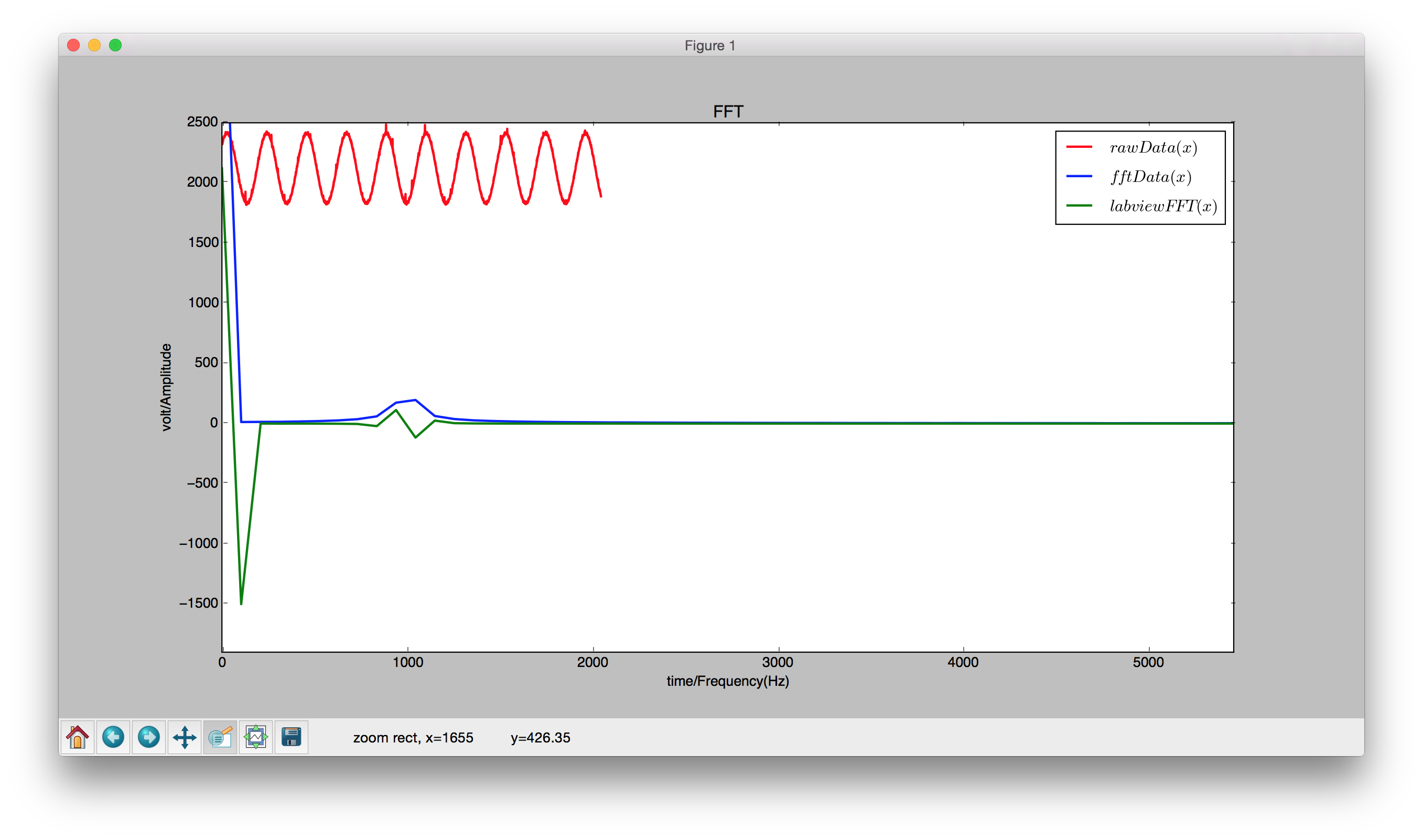#025 a Kiss FFT Example
Test drive the Kiss FFT C library with an example.
Notes
Kiss FFT is an interesting FFT implementation in C. It promises ease-of-use over absolute performance.
To build a project with Kiss FFT, it just needs the core files compiled and linked.
I found a kissfft-example which I’m building here (under macOS).
It has the core Kiss FFT files included in the repo, and links with the real-optimised version. The Kiss FFT files it uses are:
_kiss_fft_guts.h
kiss_fft.c
kiss_fft.h
kiss_fftr.c
kiss_fftr.h
The kissfft-example comes with sample data and some python utilities for plotting the results. Data files:
| File | Description |
|---|---|
| 01_Real_Part.txt | labview-generated FFT (for comparison) |
| 02_Imagin_Part.txt | labview-generated FFT imaginary component (unused) |
| dump-raw-3.txt | Raw data set |
| test-output.txt | Output generated from the FFT |
Setting up the Python Environment
I’m using virtualenv, and it needs some special considerations due to restrictions of the matplotlib library using in the python code - see Working with Matplotlib in Virtual environments.
I’m setting my virtual environment path to PYTHONHOME:
$ export PYTHONHOME=$(cd ../../venv; pwd)
Then activating the environment to install requirements:
$ source $PYTHONHOME/bin/activate
(venv)$ pip install -r requirements.txt
(venv)$ deactivate
$
The virtualenv is deactivated before running the examples … they’ll find the virtualenv from the PYTHONHOME environment variable
Running the kissfft-example
There are justa few commands to clone the kissfft-example repo, compile and run the FFT, then fire up the draw-curve.py python
script to visualise the results. I’ve put them in a shell script:
$ ./download_and_run
And here’s an example of the output:

Credits and References
- Kiss FFT Web Site - master on sourceforge
- Mirror on GitHub
- kissfft-example
- Working with Matplotlib in Virtual environments
